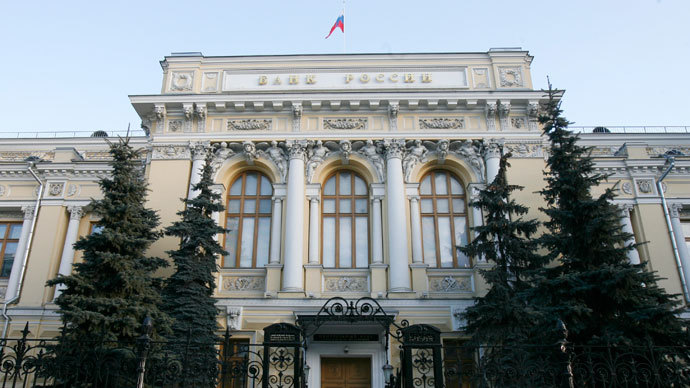Green light for financial mega-regulator in Russia

The Russian State Duma has okayed a unified financial regulator under the roof of the Central Bank of Russia (CBR). The new watchdog will oversee both Russia’s banking and its financial market.
On Friday the State Duma adopted a bill in its third and the final reading that extends the CBR’s remit to include the functions that used to be performed by the Federal Financial Markets Service (FFMS). This means that the recently elected Central Bank’s head, the first woman to head a Group of Eight central bank, Elvira Nabiullina will take charge of supervising 4,500 financial institutions and 10,000 companies with traded securities. That’s to add to her traditional obligations as Russia’s banking supervisor - oversight of the money supply, interest rates and the estimated $518 billion of foreign currency and gold reserves - the world’s largest stockpile after China, Japan and Saudi Arabia.
The law makes changes to the Russian Tax and Civil Codes and 46 federal laws.
“Given that they’ve been talking about creating a mega-regulator in Russia for 6 years, the news can be considered a turning point, positive for the market. There’s hope that the setting up of such a structure will trigger progress in other outstanding legislative issues that hamper development of Russia’s financial market,” commented Kira Zavyalova, an analyst at Investcafe.
The law governing the CBR will get a provision, saying that "main goal of the Bank of Russia's monetary policy is protecting and ensuring the stability of the ruble by supporting price stability, including for the establishment of conditions for balanced and sustainable economic growth."
To top the CBR’s conventional responsibilities, the regulator will now be embracing insurance activities, loan cooperatives, micro-finance, ratings agencies, investment of pension savings and other powers. However, the Central Bank is not entitled to legislate initiatives.
The Central Bank will also be given the power to set simplified rules for cash transactions for individual entrepreneurs and small businesses. “The regular procedure is now in effect for them, and the Central Bank did not have such powers,” said the head of the Duma financial markets committee, Natalya Burykina.
According to the adopted bill, the Russian government and the Central Bank will share oversight responsibilities in insurance. “Where there is insurance, oversight will be handled by the Central Bank, but where this is essentially an agent function, for example insurance of military personnel, mandatory medical insurance, in other words where money is simply transferred, it's the government,” Deputy Finance Minister Aleksey Moiseyev said.
The term of the CBR head, as well as of the regulator’s board of directors will be extended from four to five years. And the number of Central Bank board members will increase from 13 to 15 directors.
Once in three years the Central bank will present its game plan to develop and maintain Russia’s financial stability to the Duma, the Kremlin and the government. Legislators will hold parliamentary hearings on the plan and give recommendations.
Once the law comes into effect on September 1, the Central Bank will form a new board of directors under the new rules by November 1.

Mega effects of mega – regulator
Better quality of monitoring systemic risks is set to become the key benefit, analysts agree.
Given that the share Russia’s financial sector in the GDP has been growing during the last 2 years, the government’s desire to increase the quality of controls there looks logical, Timur Nigmatullin of Investcafe told Business RT.
The unified regulation of Russia’s finance sector, and a more systematic approach will help to avoid a US–like collapse in the future, said Nikolay Chitov, Housing Finance Bank (HFB) Chairman, talking to Business RT. “I mean the sub-prime crisis of 2008 in the US was largely caused by systemic risks that lacked supervision… Now the country has settled the risks associated with sub-prime mortgages, while the situation with other potential financial instruments remains uncertain,” Chitov added.
On the other hand, the mega-regulator could become a kind of market maker and able to promote an innovative approach, that’ll stimulate investors to bring their money to the country’s financial market, the HFB bank chairman said. “This, for example could be new rules introduced - tax exemptions for certain long term financial instruments (RMBS, mortgage bonds),” Chitov added.
“I expect that in perspective a start of mega-regulator’s operations will enable Russia to go up the rating of the world financial systems. At the moment our country holds the 39th position on a 62 points scale,” Nigmatullin said.
On a macroeconomic scale, the increased size of the body as well as the scope of its authorities will provide for more independent policy, which will definitely be positive for the whole economy and the financial markets, Nigmatullin concluded.












